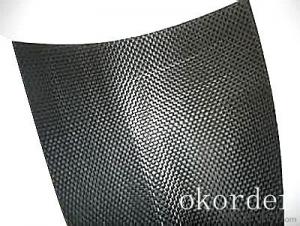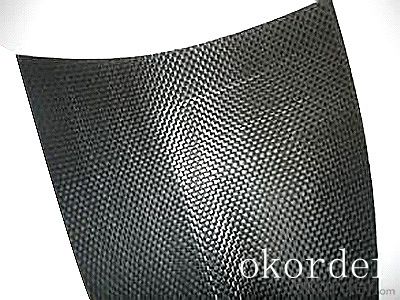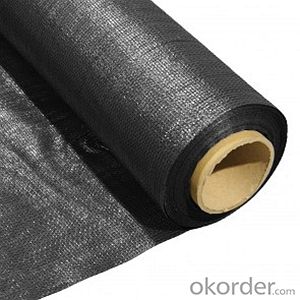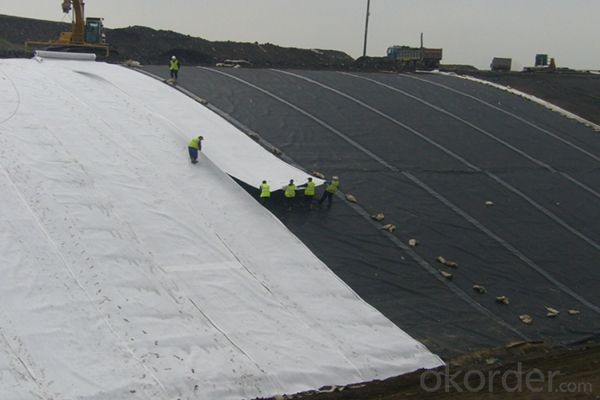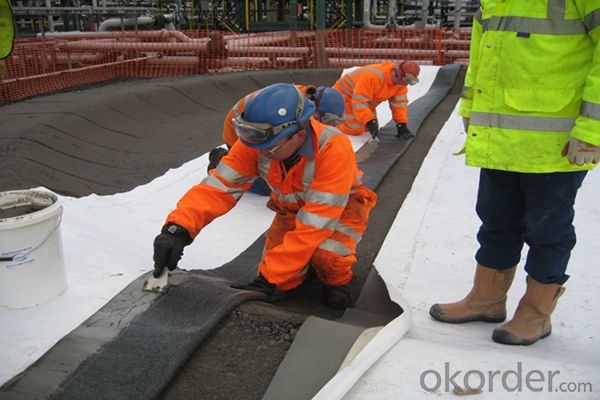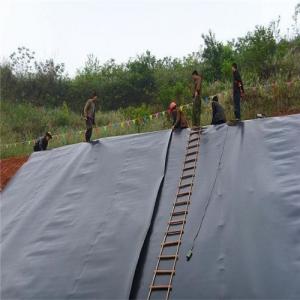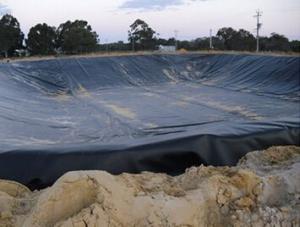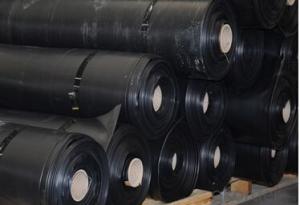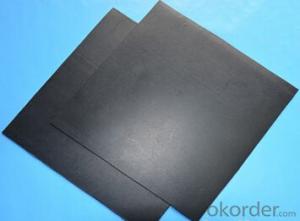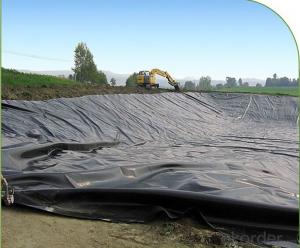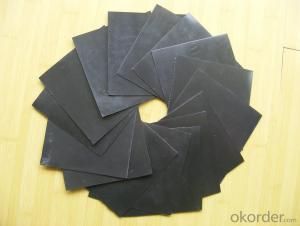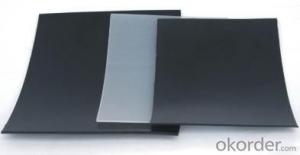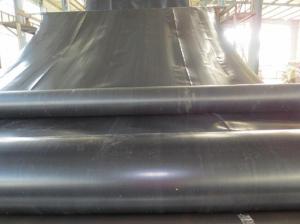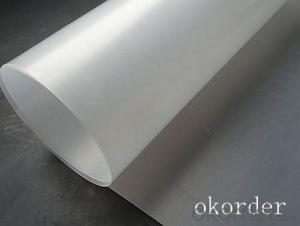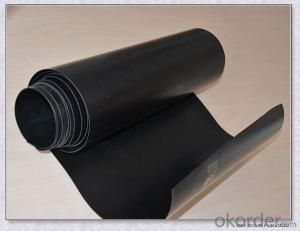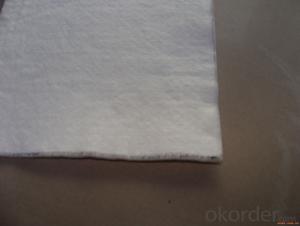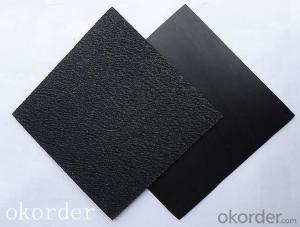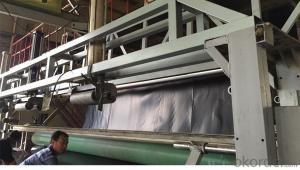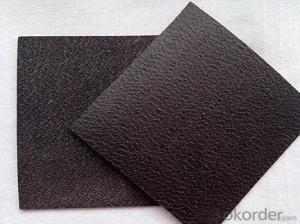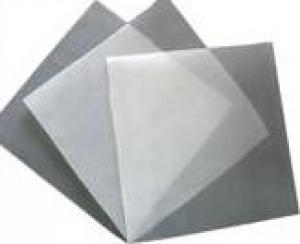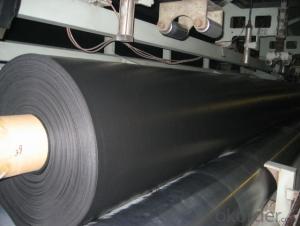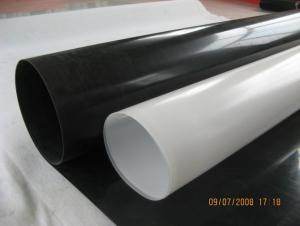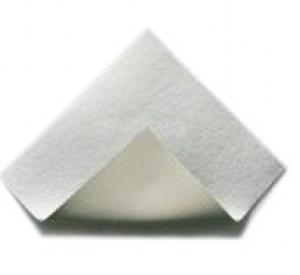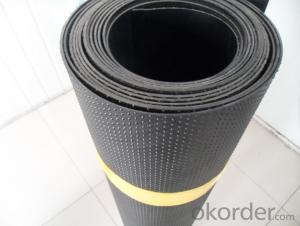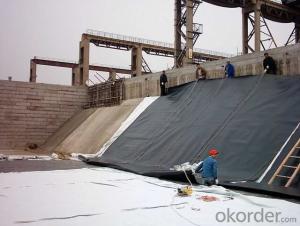Geomembrana Para Peces Polipropileno Liso Roll para la Industria Agrícola
- Loading Port:
- China main port
- Payment Terms:
- TT OR LC
- Min Order Qty:
- 1000 m²
- Supply Capability:
- 1000000 m²/month
OKorder Service Pledge
OKorder Financial Service
You Might Also Like
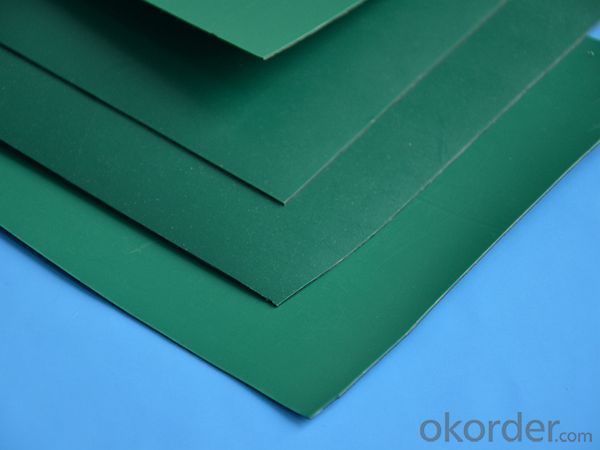
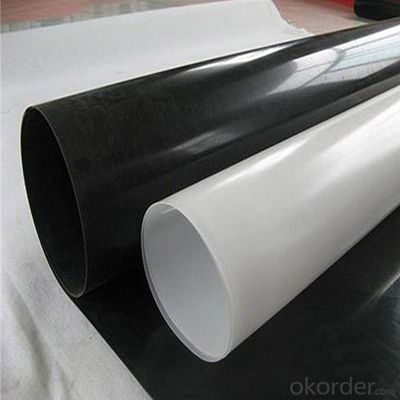
Product Introduction
HDPE
High Density Polyethylene (HDPE) is the high density version of PE plastic and is harder and denser than the LDPE, but is less ductile, and lighter than water. Climax HDPE Film / Sheet / Liner / Geomembrane has proved to be a boon especially for developing countries like India by playing an important role to prevent the air and groundwater pollution. The best thing is that it can be easily moulded and welded together and the use of UV Stabilizers improves its weather resistance. High Density Polyethylene Geomembrane lives up to the expectations which are demanded in today's world of environmental engineering. Climax HDPE's prime motive is to keep the Nature clean.
Strengths
Environmental Stress & Crack Resistance
Water Resistance
Chemical Resistance
UV and Thermal Weathering Resistance
Conformation to sub-soil movements
Tear Resistance
Puncture Resistance
Repairable
Recyclable
Very low permeability
Applications
Solid Waste Landfill for secured dumping of Hazardous Waste.
Lining of Fly Ash ponds.
Thermal / Hydro power plant.
Dumping of Radio Active waste.
Masking of concrete structures at places like Port, Jetty, Bridge.
Spill containment for Chemical and Petrochemical Industries.
Industrial Reservoirs
Lining of ETPs
Lining of Solar Evaporation Ponds / Sludge Ponds etc..
Foundation Lining, Floor Lining
Our Service
Quality assurance
1.On a regular basis or as per your request,we entrust national testing agencies to conduct quality inspections
2. Strictly in accordance with the ISO9001-2008 international quality system standard,we monitor and manage the whole process throughout production,quality testing,and measurement to ensure product quality
3. For quality-related construction delay or substandard construction(except for damage or losses due to customer’s responsibility or irresistible natural disasters),we have refunding,replacement,and repair services.We will respond to customers’ feedbacks on quality issues within 24 hours.
Packaging & Shipping
Packing: PLASTIC FILM INSIDE, AND WOVEN BAG OUTSIDE
Shipping: About 15 days after receipt the deposit
FAQ:
Q: What kind of payments does jenor support?
A: T/T, L/C, Cash are accepted.
Q: Do you charge for the samples?
A: Accordeing to our company policy, the samples are free, we only charge the freight fee. And we will return the freight fee during the next order.
Q: Can you produce according to customers' design?
A: Sure, we are professional manufacturer, OEM and ODM are both welcome.
Q: Do you have other products?
A: Yes, please check the pictures:
- Q: Does anyone know the mechanism of ion exchange membrane
- Ion exchange resins are high molecular material with an ion exchange function. in the solution, the ion of itself will have an exchange with the ion which has the same symbol in the solution. According to the nature of different exchange groups, the ion exchange resins can be classified into two categories cation exchange resin and anion exchange resin, most of the cation exchange resin have a sulfonic acid group (-SO3H), carboxyl (-COOH) or phenol (-C6H4OH), etc. and other acidic group, wherein the hydrogen ions can have a exchange with a metal ion in solution or other cation ion, anion exchange resin containing quaternary amine [-N (CH3) 3OH], amino (-NH2 ) or imino (-NH2 ) and other alkali basic group. They can generate OH- ions in water, which can have the exchange interaction with various anions, and the ion exchange resin is in very widely use, it is mainly used for the isolation and purification.
- Q: Can geomembranes be used in decorative landscape designs?
- Yes, geomembranes can be used in decorative landscape designs. They can be used as liners for ponds or water features, as well as for retaining walls or raised garden beds. Geomembranes provide a barrier against water leakage and can help maintain the integrity and aesthetics of the landscape design.
- Q: The fishpond base made of geomembrane should be backfilled what?
- You can backfill soil.
- Q: how to use landfill geomembrane at site? ?
- calculate the height of good bulldozers,spread out and compacted by rolling road car. cover a layer of membrane.
- Q: What are the functions of the battery diaphragm?
- As far as I am concerned: Diaphragm is located between the anode and the cathode, whose main fuction is to separate the positive and negative electrode active material, preventing short circuit caused by the contact of the two poles. In addition, in the electrochemical reaction, it can maintain the necessary electrolyte to form channel for icons to move. Diaphragm material is not conductive. Different types of batteries use different diaphragms.
- Q: Thickness 1.5mmHDPE geomembrane density how much the price
- Indicators different prices are not the same, probably between 13 - 18, the density of 95%, welcome to visit, hope to adopt!
- Q: How do geomembranes perform in extreme weather conditions?
- Geomembranes are designed to perform well in extreme weather conditions. They are highly resistant to UV radiation, temperature fluctuations, and chemical exposure. Additionally, geomembranes have excellent tensile strength and durability, allowing them to withstand heavy rain, high winds, and freezing temperatures. Overall, geomembranes are specifically engineered to provide reliable and long-lasting performance in various weather conditions.
- Q: What are the features of the protective film of floor in decoration?
- 。Construction techniques are as follows. 1 anti-drape technique, 2 anti-warp technique, 3 anti-scratch technique, 4 grounding cover technique, 5 the technique that integrates adhesive and film 6 the wiping off air bubble technique 7, free rotation technique, 8 safety lift-off technique, 9 durable recovery technique. Household colourful film is a home decoration material with new concept. it can be stuck on floor tiles, furnitures, glasses, all kinds of table and household appliances in a simple and convenient way. It has unique gum technology and is easy to use. It can be stuck on the cement walls immediately without shoveling the wall and moving the earth. It will not be burned when catching fire and will not be damaged when soaked in water. The price of it is affordable and it can greatly change the home to in a small sum of momey. With six functions and thousands of styles, it is suitable for all kinds of people and covers all aspects of decoration.
- Q: What should be noticed when geomembrane is welding?
- The success of sewage treatment seepage control project depends on the quality of the geomembrane itself and the quality of its installation and construction.
Send your message to us
Geomembrana Para Peces Polipropileno Liso Roll para la Industria Agrícola
- Loading Port:
- China main port
- Payment Terms:
- TT OR LC
- Min Order Qty:
- 1000 m²
- Supply Capability:
- 1000000 m²/month
OKorder Service Pledge
OKorder Financial Service
Similar products
Hot products
Hot Searches
Related keywords
